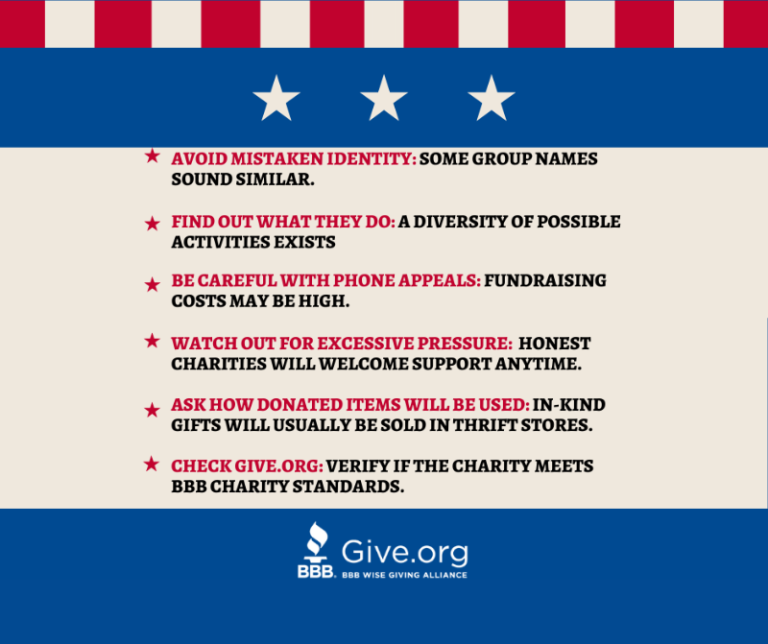Wise Giving Wednesday: Scams Directed at Charities

On Monday, June 18th, the Better Business Bureau partnered with state and federal agencies on Operation Main Street: Stopping Small Business Scams, a law enforcement initiative targeting operations seeking to defraud small businesses, and an education outreach effort to help small businesses protect themselves from fraud. BBB joined with the Federal Trade Commission (FTC), eight state Attorneys General, the U.S. Postal Inspection Service, and two U.S. Attorneys’ Offices to launch the efforts. The FTC and the referenced government agencies announced a total of 24 actions involving defendants who allegedly perpetrated scams against small businesses.
Although this initiative is focused on protecting small businesses, charities would be wise to review the information on the FTC’s website as well as the educational materials which is also available on the BBB’s website. Small and large charities, just as businesses, can be targeted as potential victims in similar circumstances, including but not limited to such activities as:
- Phony Invoices. Charities, like businesses, might receive fake invoices for toner, cleaning supplies or domain name registrations. Scammers are counting on the fact that busy offices, in some cases, may assume the bills are for ordered items, especially if it is for something important such as a website related expense.
- Unordered Office Supplies. A scammer may call a charity to “confirm an existing order” and ask for an address verification. If the call recipient says “yes” to the address, then unordered items arrive with follow-up high-pressure demands to pay for them.
- Fake Check Overpayment Scams. This scam was featured in previous Wise Giving Wednesday blog entries.A charity may receive advance email notice of a large five-figure donation to be received via overnight mail. When the check arrives, the organization receives an immediate follow-up contact asking that a portion of the donation be returned immediately via wire-transfer due to an unanticipated emergency for the donor’s family and/or that an error was made in the amount of the check. The charity later discovers the original check is a fake and they have lost the amount that was sent back to the individual.
While internal accounting controls can help reduce the likelihood of such cons taking place, charities that educate their employees about such possibilities are better armed to avoid being taken. Charities, as well as businesses, can report potential scams on BBB Scam Tracker to help alert others. They can also contact the FTC (FTC.gov/Complaint) as well as their state Attorney General.
Video of the Week
As part of our Building Trust Video Series, we are pleased to provide a video featuring Thomas Kemper, General Secretary, United Methodist Committee on Relief, a BBB Accredited Charity, that seeks to alleviate suffering whether caused by war, conflict or natural disaster. UMCOR helps communities in the United States and abroad prepare for emergencies and to reduce the risk of disasters through a roster of training programs. The organization’s International Development Unit works through its field offices and partner network to facilitate long-term community development and empowerment in areas of need.
Recent Reports
We are always working with charities to publish or update reports for donors. Visit Give.org or local BBBs to check out any charity before giving.
Also, remember to let us know by going to https://www.give.org/ask-us-about-a-charity1/ if you are interested in seeing a report on a charity not on the list and we will do our best to produce one.
H. Art Taylor, President & CEO
BBB Wise Giving Alliance


